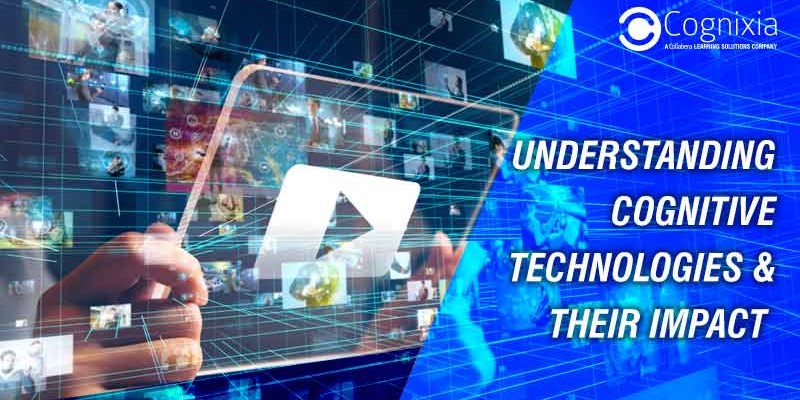Understanding Cognitive Technologies & their impact
We are surrounded with cognitive technologies in our everyday life, and we do not even realize it. Siri, Alexa, Cortana, and Google Now are some of the incredible specimens from the cognitive AI landscape that have transformed our lives. But have you ever wondered about the black box behind these applications? To comprehend these systems and appreciate their excellence, we must first understand the cognitive technologies (working behind the scenes) and their impact on the socio-economic landscape.
What is Cognitive Technology?
Cognitive technologies emulate human capabilities – human thought process and human senses. They bridge the gap between human consciousness and computing thus enabling static systems to display human intelligence. For instance, Natural Language Processing (NLP) is a cognitive technology that can emulate a complete system right from visual and auditory recognition to complicated language analysis.
The evolution of cognitive technologies is the result of the expansion of the AI space. AI can be considered as the superset of these technologies; however, with technological innovation at a rapid pace, these cognitive technologies are expanding in their own right, disjoining from the name of AI to become independent disciplines in themselves.
Cognitive technologies are becoming more apparent in the business sphere. Some of the cognitive systems are consumer based. For example, Siri and Cortana. Most of the cognitive systems, however, are enterprise-based, aimed at streamlining business operations and workflow. Complex and voluminous data that was previously locked is now creating value for businesses – thanks to cognitive technologies.

Cognitive Technologies in the Enterprises
Most of the cognitive tools and technologies like Natural Language Processing, Speech-to-Text, Machine Learning, Biometrics, etc are still evolving. In the Information Technology industry and the business environment, however, these technologies are used extensively for engagement, insight, and automation.
Enhancing User Engagement with Cognitive Technologies
Cognitive technologies can be utilized to improve end-user experience by offering personalization at scale. This can be achieved through communication techniques that are natural to human beings such as auditory and visual. Natural Language Understanding (NLU) and Natural Language Generation (NLG) are the two technologies that accept and convert natural language for the users reducing the complexity and improving the understanding of information. Speech recognition and speech synthesis technologies ease the user experience further by the ability to communicate information orally. Augmented Reality (AR) and Virtual Reality (VR) deliver the next generation user experience by simulating real-time scenarios.
Impact: Cognitive technologies for user engagement deliver the ability to find the way with complicated information in a simple, personalized manner. This is done through visual, auditory, physical and natural language media provides an omnipresent cognitive engagement with enhanced human productivity and constructive user experience.
Creating Insights with Cognitive Technologies
Big data platforms offer billions of data points from which cognitive technologies develop new patterns and relationships to extract real-time, actionable, and value-added insights. Cognitive insight technologies amend their algorithm and resulting output over millions of iterations without human intervention to recursively optimize the target system.
Impact: Netflix uses cognitive technologies like Machine Learning to curate recommendations for viewers. Based on data about user’s history and general trends, the system devises algorithms and enhances it continuously with data and pattern recognition.
Automating Well-defined Processes with Cognitive Technologies
Cognitive automation replicates the processes and activities that, although simpler, are repetitive in nature. With a huge set of governing principles and libraries, cognitive systems create a strong architecture around the decisions made to result in intelligent automation.
Impact: Cognitive automation leads to direct replacement of human processes by computer software. These types of software can plan, calculate and optimize tasks to determine the most optimal one and then automate the operations and working principle based on it.
Cognitive technologies from these three categories can be employed to sense, shape, and replicate the exceedingly complex human thought process that can be adopted and utilized in almost any industry.

